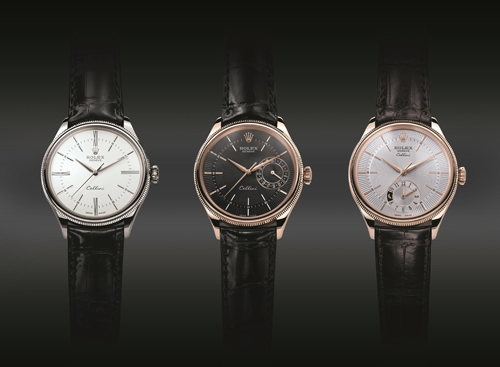Watchmakers, especially high-end market watch makers and watch retailers increasingly nervous relationship. In the past decade or so, the relationship between the two sides has been quietly toward the opposite direction, leaving watch retailers and distributors quite frustrated. Honeymoon is over. This situation is no longer a problem. In the past ten years, brand franchise stores have mushroomed, but investment has only increased and its fault tolerance has been declining. Bernard Formas, co-chief executive of Richemont's Richemont Group, warned recently in the newspaper Le Temps that "we needed outstanding performance in the distribution segment.
Retailers need to be more active collaborators, helping us to build brands and establish our presence in their sales outlets. This is not just to talk about it, our quality requirements for partners is indeed more and more demanding. In other words, some retailers do not qualify and, as a result, the Geneva luxury goods group opened a number of franchises and franchises this year, with Richemont-based Bellevue now generating 52% of its revenue from its own sales network. By the end of September, the first half of the 2013-14 fiscal year, the group owned as many as 1043 self-owned stores around the world.
"The Swatch Group plans to achieve 35% sales through proprietary stores."
Swatch Group: "There's still some way to go"
Although Swatch Group ranked second, but the rapid development. The watchmaking boss, in 2014 and beyond, plans to continue expanding its self-operated store network. Although its self-operated stores account for only 20% of total revenue, this figure will increase significantly in the future. As Nick Hayek, chief executive of Swatch, said last week, these stores will generate between 30% and 35% of sales revenue in the future, though he believes it is a long way from this goal. Many of the brands owned by the group will have their own specialty retail outlets and some new multi-brand stores will continue to expand globally. Such as Hour Passion, the group's high-end brands together. Since its establishment at the airport in 2004, the chain has seen more than 50 stores in 2013 in China, Italy, Germany and the United Kingdom. Last year, the trend was also expanded to cities such as London, New York, Las Vegas, Kuala Lumpur and Poznan in Poland. The first city center boutique is located on the Rue de Sèvres in Paris.

Shanghai Breguet stores
In just 13 years, the Swatch Group's Omega Omega has set up 123 exclusive boutiques, a total of 322 sales outlets. The Omega boss unequivocally states that he prefers a single-brand store over traditional retailers. Stephen Urquhart told Le Temps, "In an ideal world, we would only have our own store, which would avoid internal risks such as partner management changes or bankruptcy." The remarks have come under the retailer's attention, even in Germany Caused some sensation. Inevitably, brands are concerned that their competitors' sales performance is better, better demonstrated, their sales are better at a single brand store, and their performance depends on the profits to retailers. Manuel Emch, chief executive of Romain Jerome, said the profit ratio has been declining, dropping from 40% to 50% in recent years to about 30%.
Rolex, a compelling exception
However, most brands find it hard to abandon their partners or at least not completely give up. But in any case, this is not a goal. In addition to Omega self-service stores, but also the use of 3,000 retail outlets. But sometimes it's hard to accept. An owner of a number of watch retailers in Switzerland said: "Even though we have been in partnership with the X brand for a little more than 30 years, X started owning stores in the same street. I was stabbed from the back, especially when I got the message informally. "However, not all brands are keen to build their own self-owned store network. Rolex is the notable exception. This brand with the "crown" sign likes to create its own character.

Geneva giants Rolex did not intend to set up its own store, it and the historic Swiss retailer Bucherer to set up a large store, and that both sides do their duty. Rolex is convinced that this approach is unlikely to change. In recent years, Patek Philippe has significantly reduced the number of retail outlets (from 750 to 450) and will continue to focus on retail partners. In the words of President Thierry Stern, "There is no retail partner without us."
Will a single-brand boutiques affect retailer sales? Diplomatic official response is, no. However, it is hard to believe that this offensive will have absolutely no effect. For example, since 2007, the watch brand Hublot has opened 70 boutiques around the world and has made thousands of orders, or it can only be done in other retail stores. However, no retailer will openly declare that the days are not good. Retail stores say they can offer their customers a great variety of choices and brands. Indeed, customers are free to choose. However, in recent years, this effect has weakened as watch sales hit the growth bottleneck. Retailers also benefit from "travel shopping", especially from China. But what if the tourist downturn does? And who will continue in the game? - Single-brand boutiques or multi-brand retail stores? The answer is comparable.